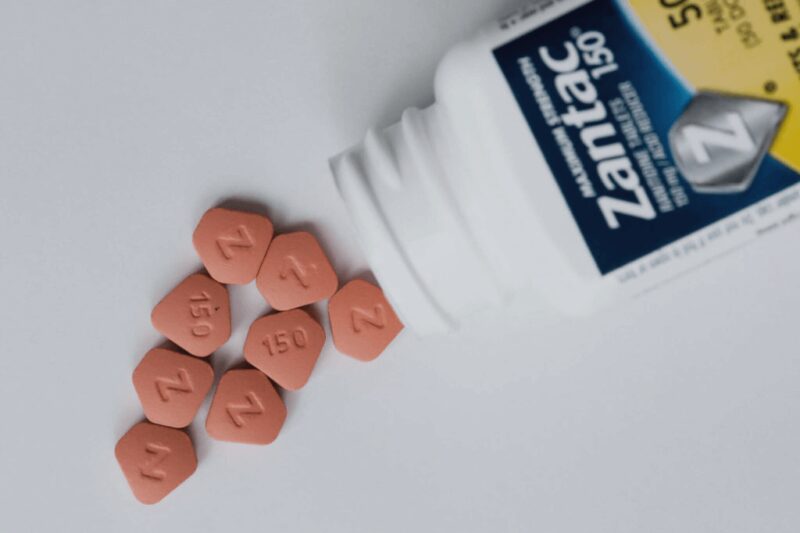The Zantac Lawsuit: 6 Updates You Need To Know

Ranitidine, which is better known by the brand name Zantac is just one of the many oral treatments used to reduce stomach acidity. For many years, it’s been a common prescription for patients who are suffering from heartburn and gastric and peptic ulcers. However, in 2019, the Food and Drug Administration (FDA) discovered after some tests that it contains high levels of NDMA or N-Nitrosodimethylamine. NDMA was previously identified as a potential human carcinogen, which means ingesting it, especially regularly and in high amounts, may cause cancer.
At the time of the discovery, millions of people have already been consuming ranitidine, with many patients taking it on a long term. Consequently, this led to at least a thousand lawsuits filed against the drug’s manufacturers. Commonly pertained to as ‘Zantac lawsuits,’ these cases have been covered by numerous websites like druginjurynews.com, where you may also find other valuable info.
But if you’ve filed a related lawsuit or are looking to start one, below are the six updates you may want to know from recent developments in filed cases:
1. Health Effects

In negligible amounts, NDMA doesn’t pose any threat to human health. However, in multiple tests, ranitidine was found to contain as much as 320,000 nanograms of the potential carcinogen. This is way above the acceptable level of 96 nanograms.
On average, 150 milligrams of ranitidine contain 18 nanograms. However, when exposed to temperatures above 25°C, NDMA increases continuously the higher the temperatures get. What’s even worrying is in several studies, the tumor-inducing chemical may also increase after ingestion.
For patients who have been taking ranitidine regularly, their constant and prolonged exposure to elevated levels of NDMA may result in tumors, which may eventually turn into cancer.
In most of the lawsuits that have been filed in connection to the use of Ranitidine, the following organs are the most commonly afflicted with cancer:
- Bladder
- Colon
- Kidney
- Liver
- Ovarian
- Prostate
- Skin
- Stomach
But aside from cancer, other medical issues have also been identified, including hypertension and inflammatory bowel disease. In such cases, patients may now be eligible to claim compensation through a lawsuit of the same nature.
2. Consolidation
As one of the most popular antacid medicines to date even before the lawsuits, Ranitidine has millions of consumers worldwide. Because of the expected influx of related cases, a consolidation is now an option.
Through this consolidation process, your Zantac-related lawsuit may be combined with the same lawsuits filed in your jurisdiction. This may help speed up court proceedings. Apart from the consolidation, lawyers may also file class-action lawsuits on behalf of their clients in several states, such as Connecticut, California, Florida, New Jersey, Massachusetts, and many more. This means that the residents of these states who bought the questionable drug may participate although they aren’t diagnosed with cancer. They just need to prove their purchase of the drug and that they didn’t get a warning from the pharmaceutical manufacturer about its risks.
However, these lawsuits aren’t designed for monetary compensation, as in many cases, they’re only used by consumers to get a refund of their ranitidine purchase. Lastly, while the current studies about the relation of the drug to cancer formation don’t exactly support the claims, there’s a forecast that many Zantac claims will proceed to court trials in 2024.
3. Payout

Generally, patients can receive various types of settlements in a Zantac lawsuit. These can include global and inventory settlements. The global settlements’ coverage includes outstanding claims. Under this type, a certain list of criteria is used to determine the right lawsuit payout a patient can get. Also, they’re considered more personalized settlements because the amount a patient can receive is calculated based on their current medical condition.
On the other hand, inventory settlements pertain to cases handled separately and accommodate multiple victims seeking compensation. It means that each client of this type of settlement may decide on the settlement or compensation amount they should receive from the responsible manufacturer.
In general, the average payout for global settlements is computed based on settlement tiers. The top-tier cases are worth more than US$500,000; US$250,000 for second-tier cases, and a maximum of US$100,000 for low-tier cases. If you want to find out the estimated amount of settlement you may get for your current case, it’s best to consult an experienced personal injury or tort lawyer.
4. Settlements And Verdicts
As of September 18, 2024, there are still no actual settlements for any Zantac case on file. Trials and proceedings have been significantly delayed by the ongoing pandemic. However, claims have been dismissed in a multi-district litigation (MDL) in Florida, as the judge assigned believes that the cases were preemptive.
Nonetheless, appeals are expected to follow the dismissal. Moreover, there are still around a thousand other cases waiting for a verdict, and the dismissal only involved dozens of cases.
5. Compensation

Affected patients may now get compensated for the losses they sustained directly and indirectly from cancer cases that have likely stemmed from ranitidine use. This includes medical expenses, lost income and capacity to maintain a job, pain and suffering, loss of companionship, funeral costs, and other similar losses.
However, you’ll need an experienced and reliable personal injury lawyer to secure maximum compensation. The legal representative can assist you in providing sufficient evidence to prove your case and your right to compensation for the loss and damages you incurred from your cancer that may have been induced by using ranitidine.
6. Filing Early
If you’re one of the millions of consumers that have taken ranitidine, it’s highly advised to hire professional legal consultation early. Health issues may develop anytime, especially if you’ve been using the drug for a long time. Waiting shouldn’t be an option in this case.
Schedule a consultation with your trusted lawyer as soon as possible. After assessing your situation, they may advise you to proceed with filing a case in the soonest time possible. Early filing can help you ensure you’d receive the appropriate compensation and settlement you are entitled to.
Conclusion
Zantac lawsuits are expected to continue for at least a few more years. If you’ve been ingesting this drug for a long period, don’t hesitate to speak to your lawyer to find out your next best legal actions. The dismissed cases shouldn’t deter you, as it’s only a very small percentage of the current number of lawsuits on file, which means it’s not enough to predict the outcome of the majority of cases still waiting for a verdict.




